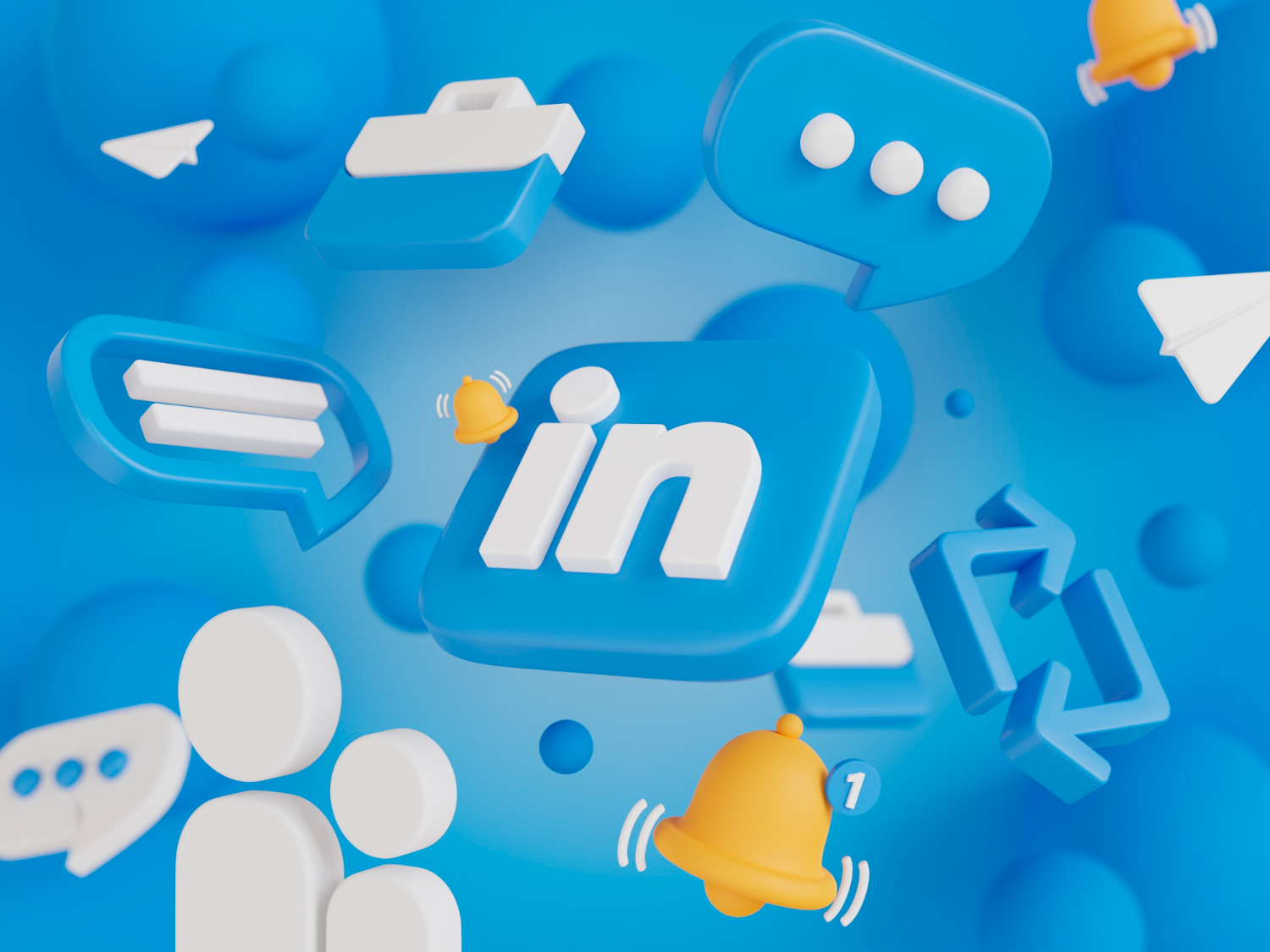Brand recognition will reach unprecedented heights by 2025.
Imagine a world where your branding identity speaks for itself.
Branding and marketing will become inextricably linked as businesses strive to build an integrated approach that leverages both strategic and creative elements. With the rise of digital technology, marketers will have the tools to not only communicate a brand’s message effectively but to engage audiences in ways that are both meaningful and memorable. Marketing strategies will increasingly focus on storytelling and brand narrative, shaping how consumers perceive and interact with a brand, thereby enhancing its overall value and recognition in the marketplace.
In this future, branding, advertising, and content marketing will be deeply intertwined, shaping human interactions and choices by enhancing brand awareness and visibility through innovative new technologies that captivate and inspire us, while a robust brand strategy transforms aspirations into realities like never before.
The possibilities are endless.
Future Trends in Branding
As we move towards 2025, branding will transcend traditional paradigms, becoming an immersive experience that reshapes consumer reality, tapping into the unprecedented potential of technology and innovation.
Augmented reality bridges the gap between digital and physical branding realms.
Yet another emerging trend lies in hyper-personalization, where messages are meticulously tailored, enhancing consumer-brand loyalty.
Brands will increasingly rely on data analytics for predictive insights, offering proactive solutions.
Ultimately, experiential authenticity will captivate consumers, driving brands to engage in socially responsible initiatives, thus enhancing brand equity by creating an emotional connection that fosters trust and loyalty among their audiences.
Looking ahead, the future of branding is an exhilarating frontier. This vibrant landscape presents remarkable opportunities to redefine what it means to truly connect and resonate with today’s discerning consumers.
Marketing Automation in 2025
Embrace the transformative power of branding and marketing automation.
By 2025, marketing automation will have revolutionized the customer journey. The rapid evolution of AI-driven technologies will allow for unparalleled personalization, tailoring real-time interactions with precise accuracy. Consequently, marketers will see their capabilities expand dramatically, honing in on delivering impactful, customer-centric experiences with unprecedented efficiency.
Automation will redefine dynamic content strategies by integrating a robust branding strategy that ensures brand messaging remains consistent and impactful.
These advancements will elevate customer value – not just by optimizing resource allocation and minimizing redundancy – but by facilitating seamless integration across multi-channel ecosystems. Brands will harness automation not merely as a tool but as a cornerstone of mega-success.
Through innovative, automated solutions, marketing strategies will be better equipped to foster long-lasting relationships, cementing a brand’s presence in an ever-competitive market. By envisaging the possibilities that automation brings, starting today, you set your brand on a path toward triumph in tomorrow’s digital marketplace.
Personalization Strategies
By 2025, personalization strategies will manifest as a fusion of advanced data analytics, AI-driven technologies, and nuanced customer insights. Seamlessly embedding these elements into marketing tactics will empower brands to create deeply resonant interactions that inspire loyalty and bolster retention.
In an era marked by the art of personalization, the distinction lies in “micro-moments.” These are opportunities for brands to connect with customers uniquely tailored to individual expectations. By anticipating and responding to these moments, brands can effectively capture their audience’s attention, leading to experiences that feel both magical and deeply personal. Empower your brand by harnessing this synergy, and watch as it unfolds into a compelling narrative of success.
Enhanced Customer Experiences
As we advance towards 2025, the landscape of branding and marketing will transform through enhanced customer experiences. Businesses must prioritize creating seamless interactions that transcend traditional boundaries and expectations.
Embracing technology like AI and AR will allow brands to redefine connectivity, ensuring experiences are not only memorable but also intuitive. This evolution will cultivate unparalleled customer loyalty and forge authentic relationships.
Companies that integrate advanced AI technologies will see customer engagement increase by an estimated 35% over the next five years.
Strategically investing in customer experience innovation means envisioning a future where brand interactions are personalized and anticipatory. Success will be measured by how effectively brands leverage real-time feedback and predictive insights to exceed consumer aspirations, creating an ecosystem where customers thrive alongside their favorite brands. The horizon is bright for those who dare to innovate and engage.
AI’s Impact on Branding and Marketing
In the dynamic world of branding and marketing, AI is revolutionizing how businesses understand and engage with their audiences. By harnessing AI-powered insights, brands can tailor strategies that anticipate consumer needs, foster personalized experiences, and deliver content with pinpoint accuracy. An optimistic perspective of AI’s role reflects a reality where brands seamlessly integrate human creativity with machine learning to craft unforgettable narratives.
Such transformative capabilities empower marketers to not only reach but also resonate with diverse, ever-evolving audiences in real time. As AI redefines possibilities, marketers are poised to drive a new era of innovation that inspires both brands and consumers alike.
Leveraging Machine Learning
Machine learning stands as a formidable ally, extending the boundaries of branding and marketing into realms once thought visionary.
By employing algorithms capable of analyzing massive datasets at lightning speed, businesses can understand consumer behavior like never before, transforming data into actionable insights. This empowers brands to predict trends, personalize customer experiences, and hone their messaging with surgical precision. The sheer scalability of machine learning makes it indispensable, elevating brands to new heights of strategic capability.
Moreover, these tools foster an era of continuous improvement in advertising and marketing efforts. As data flows unabated, machine learning algorithms learn and adapt, refining their analyses to provide ever-more-precise insights. This cyclical process means that the longer machine learning tools are used, the more powerful they become in shaping brand strategy, brand identity, and driving successful branding initiatives.
In this vibrant landscape, machine learning’s potential for enhancing brand awareness, visibility, and brand strategy is limited only by our imagination. From automating routine tasks to personalizing consumer journeys on a staggering scale, these technologies promise to redefine connections between brands and customers. As we journey towards 2025, brands that fully embrace machine learning stand to create not only effective strategies but also lasting relationships and meaningful experiences, ultimately enhancing their brand equity.
In the realm of branding and marketing, businesses are increasingly realizing the importance of leveraging machine learning and artificial intelligence to deliver personalized experiences. Effective branding and marketing strategies now rely heavily on data-driven insights to tailor messages that resonate with specific consumer segments. By employing these advanced technologies, companies can refine their brand messaging and enhance customer loyalty, ensuring they remain competitive in an ever-evolving market landscape.
Social Media Evolution
The landscape of social media is undergoing a significant transformation as platforms adapt to newer, more interactive forms of content, such as augmented reality, live streaming, and ultra-responsive, AI-driven chat bots that enhance user experience and branding.
These advancements empower brands to engage their audiences more dynamically, fostering deeper connections and facilitating the exploration of untapped creative potentials.
New Platforms and Strategies
As we approach 2025, innovation in content marketing, branding, and marketing continues to surge forward with inspiring momentum. Emerging platforms are reshaping the digital landscape, paving new avenues for brands to connect and engage.
Brands that leverage these new platforms will stay ahead. By understanding the nuances of these cutting-edge technologies, marketers can drive growth.
Among the most exciting developments are immersive technologies like augmented and virtual reality, which offer brands a canvas to create uniquely engaging experiences. These platforms extend beyond novelty, enabling customized storytelling that resonates profoundly with audiences.
Furthermore, the proliferation of voice-activated devices and AI-driven personal assistants presents marketers with a frontier of opportunity. Brands now have the chance to not only integrate seamlessly into everyday consumer routines but to also craft personalized, real-time interactions that speak directly to individual needs and preferences. Critical success depends on adaptation and foresight, turning these platforms into powerhouse tools for exponential brand growth and fostering an emotional connection with consumers.
The Role of Influencers
In the evolving landscape of branding and marketing, the role of influencers is more pivotal than ever.
By 2025, influencers, having matured into sophisticated brand ambassadors, possess the ability to forge genuine connections. They transcend traditional advertising, transforming marketing dynamics and solidifying their status as invaluable assets for brands seeking authenticity.
Today’s influencers are not just content creators; they are architects of community and trust, crafting a narrative that aligns seamlessly with brand values. Their influence enables marketers to penetrate niche markets effectively.
As technology advances, the power of these digital storytellers continues to grow, allowing influencers to innovate and maintain an edge over the ever-changing marketing ecosystem, ensuring relevance and impact.
Influencers, therefore, are key players in the branding and marketing arena, driving engagement and fostering lasting consumer relationships.
Virtual and Augmented Reality
In the exciting realm of 2025, branding and marketing seamlessly blend with virtual and augmented reality technologies.
Since 2016, these realms have continued their relentless drive toward innovation, becoming integral to marketing strategies. Seamlessly integrating VR and AR into campaigns, brands offer immersive experiences that captivate audiences beyond traditional scopes.
Engaging consumers through virtual storefronts or augmented product demonstrations, companies create a dynamic connection, transcending geographical barriers. This offers brands a profound opportunity to reshape consumer expectations and drive unprecedented levels of engagement.
Brands standing on the cutting edge are transforming potential into reality, ushering in a new era of branding and brand-consumer interaction. VR and AR not only ignite imagination but also forge pathways for deeper brand loyalty and interaction, engaging the senses and emotions.
Embrace this digital renaissance, and watch as marketing strategies reach phenomenal new heights.
Sustainability in Branding
Sustainability is the future of branding.
As we approach 2025, the shift towards sustainable branding has never been more critical. The new landscape is defined not only by a brand’s commitment to eco-friendly practices but also by an authentic narrative of responsibility and stewardship. Consumers, now more than ever, demand transparency on the origins of the products they buy and the processes that create them.
Leading brands are aligning their missions with environmental values.
The focus extends beyond recycled materials to – in fact, goes as far as innovating entire product lifecycles to ensure reduced carbon footprints – leveraging technology-driven solutions such as smart packaging and supply chain audits.
Brands that envelope sustainability as a cornerstone of their marketing strategies establish themselves as leaders, ready to lead global movements towards a brighter future. They capture a competitive edge by not merely adhering to but pioneering practices that establish robust regulatory cash flows while inspiring a profound sense of purpose in their consumers.
Inclusivity and Diversity
Inclusivity and diversity are pivotal.
In 2025, brands will increasingly recognize this vital truth. The best companies will not only echo these principles within their internal practices but will also weave them intricately into each brand’s external narratives. Currently, success hinges on these tenets of inclusivity, fostering more meaningful connections with diverse audiences.
They shape how brands forge authentic ties, enhancing branding, brand equity, visibility, and awareness in the process.
The future belongs to those who embrace – in both heart and action – the rich tapestry of human differences to foster a globally inclusive branding culture. Leading brands will leverage forward-thinking strategies to emphasize these principles.
Such strategists know that inclusive marketing unleashes enormous potential, unlocking new markets and demographics, allowing brands to thrive in the competitive landscape of 2025. By celebrating an expansive array of perspectives, brands can craft resonant messages that transcend traditional narratives.
Branding and marketing efforts must adapt to such diverse audiences to create truly impactful connections. Incorporating inclusion into branding strategies not only enhances market reach but also fortifies the brand value by resonating with a broader spectrum of consumers. By crafting campaigns that reflect this inclusive ethos, brands build trust and foster long-term loyalty, setting a paradigm for future branding methodologies that are both innovative and empathetic.
Data Privacy Concerns
Consumers increasingly prioritize data privacy.
In the dynamic landscape of branding and marketing in 2025, the sensitivity surrounding data privacy remains paramount. With data serving as the lifeblood of modern marketing strategies, brands must navigate these concerns with utmost diligence, ensuring their digital ecosystems offer robust protection for consumer information. Organizations pioneering this endeavor will not merely comply with regulations but champion transparency as a standard in their engagements.
They must safeguard trust with proactive privacy measures.
Now, more than ever, brands that prioritize respecting digital privacy laws can expect to foster loyalty and build stronger consumer relationships. A shared commitment to privacy, alongside advanced technology safeguards, promotes user confidence.
Embracing these ideals not only helps fortify organizational reputations but propels innovation as brands seek proactive, privacy-first approaches. This evolution is crucial for nurturing a sustainable ecosystem where consumer trust, derived from rigorous data protection standards, spearheads a future of enhanced brand-customer allegiance.
Storytelling in Marketing
In the vibrant landscape of 2025, storytelling reigns supreme as the heartbeat of effective branding and marketing strategies, crucially shaping a brand identity that resonates with diverse audiences.
In a world inundated with content, brands must rise above mere noise, capturing hearts and minds through authentic narratives. By weaving compelling stories, they create emotive connections that transcend traditional marketing boundaries and foster genuine consumer engagement through an emotional connection.
Now, it’s no longer enough to present a product’s features; brands must embody a tapestry of experiences, values, and effective content marketing strategies that resonate deeply. By strategically leveraging the power of storytelling, they evoke emotions and inspire brand loyalty, enhancing their branding in an ever-discerning audience.
Brands that harness the art of storytelling and integrate impactful advertising galvanize not just interest but advocacy, transforming consumers into fervent brand ambassadors. In this new era, brands that can seamlessly blend creativity, purpose, and authenticity with storytelling will lead the charge toward an inspiring future.
Through storytelling, marketing becomes a dynamic exchange, enriching brands and their communities in profound ways.
Integrated Marketing Approaches
In 2025, integrated marketing approaches will redefine how brands engage with their audiences by creating cohesive and immersive experiences. These approaches utilize cutting-edge technology to seamlessly connect various marketing channels, ensuring consistent messaging and a unified brand voice across all platforms, thus elevating the consumer journey and forging stronger, more personalized relationships.
Cross-Channel Consistency
In 2025, cross-channel consistency is paramount in delivering a cohesive brand experience that fuels customer loyalty and engagement.
- Unified Messaging: Ensure that brand messages remain consistent in tone, style, and content across all platforms.
- Integrated Technology: Use advanced technology to synchronize communications, enhancing alignment between various digital and traditional channels.
- Holistic Analytics: Employ comprehensive analytics to understand and predict customer interactions, driving consistent experiences that meet personalized needs.
- Collaborative Teams: Foster collaboration among marketing, sales, and customer service teams to sustain a seamless brand narrative.
- Adaptive Content: Create adaptable content strategies that maintain the brand’s essence while catering to diverse audience preferences.
Achieving cross-channel consistency requires a strategic approach, ensuring every touchpoint reinforces the brand’s values and promise.
Brands that excel in cross-channel consistency can inspire confidence, cultivating lasting relationships that transcend the ordinary.
Measuring ROI in Modern Campaigns
In the dynamic landscape of 2025, assessing the ROI of branding and marketing campaigns requires innovation and agility.
The ROI of modern campaigns extends beyond traditional sales metrics to include brand equity, customer lifetime value, and digital footprint.
Leaders are leveraging data analytics to quantify the nuanced impacts of their campaigns, capturing subtle shifts in consumer perception and engagement, ultimately enhancing their branding efforts.
By integrating AI-powered analytics, marketers gain real-time insights into campaign performance, enabling swift adjustments to maximize outcomes.
Strategically measuring ROI fosters informed decision-making, propelling brands to thrive in an ever-evolving marketplace.








